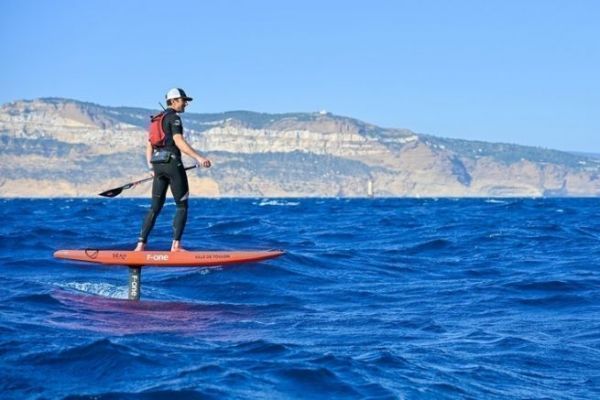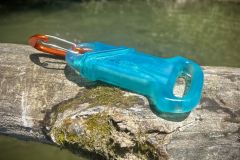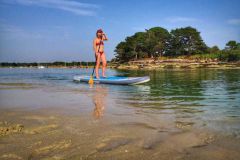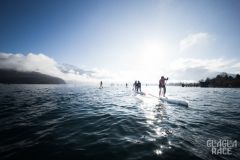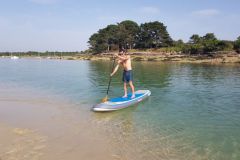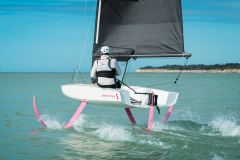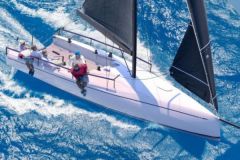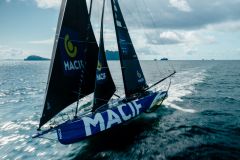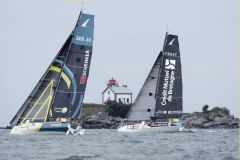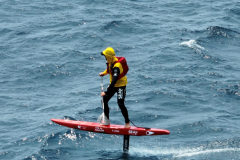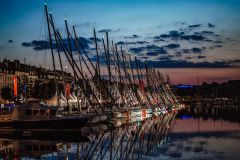A well-prepared project
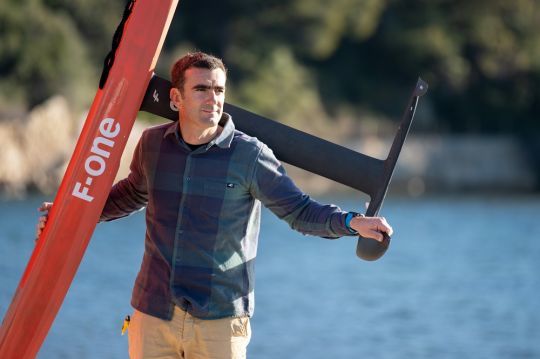
After discovering the foil in 2022, this former French windsurfing champion has slowly matured this ambitious project. The aim is to sail from Toulon to Calvi on a foil-equipped paddle, without a sail, without a motor, just by force of arms, surfing the long Mediterranean swell.
"In my head, the project is over a year old. It took me a while to realize that I had the potential to do it. Then, in 2023, I concretely put together the dossier, tackling the various aspects: technical, financial, administrative, physical, nutritional and meteorological."
An accompanying boat equipped with foils
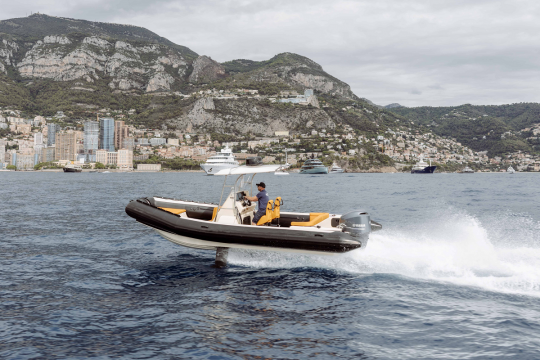
To ensure Erwan's safety, he had to be accompanied by an accompanying boat. For this crossing, the team chose a foiling RIB, the Flying Tender 80, produced and designed by SEAir.
"Tested in dynamic conditions, this hull has given us complete satisfaction. Perched on my foil, I'm making good headway at speeds of between 10 and 20 knots, and this foiling hull handles swell very well. Where a conventional hull is hard hitting, the foil smoothes out the boat's movements and provides extra comfort for the crew on this trip, which should last a dozen hours. Not to mention reduced fuel consumption compared to a conventional archimedean hull. "
The crew will be made up of a pilot, a router and a mediaman. In addition to navigation, the router will be responsible for maintaining visual contact with Erwan.
What equipment do you need for this long sail?
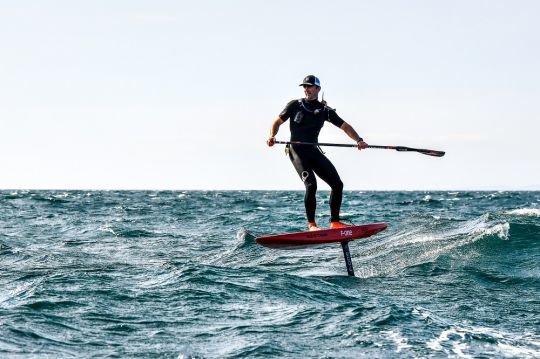
To cover the 120 miles between Toulon and Calvi, Erwan is setting off with a substantial amount of equipment. He'll be flying an F-One board, a prototype that will eventually go into series production. Foil and paddle are already available to the general public. As for safety, the list is long:
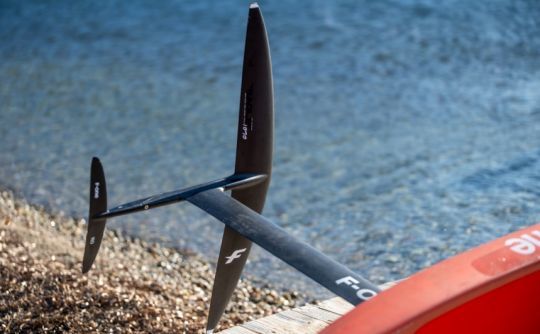
"I have an arsenal of beacons on me. I'm setting off in a Soruz neoprene suit, I've got a camel bag with water and food, a GPS-GSM tracker, a set of distress flares, a flash-light on the vest, cyalumes, a knife in case I catch a net on the road, a PLB3 beacon to keep me on track.
We did a training session between Martigues and Hyères, a hundred miles or so. This enabled us to validate our technical choices and get ourselves in configuration to cross."
A constructive administrative section
In theory, a stand-up paddle under 11.6 feet is not allowed to sail more than 300m from a shelter, a rather restrictive rule when you want to make a crossing to Corsica. Erwan and his team have held lengthy discussions with Cross Med and the Prefecture to establish a legal framework for this sporting project:
"We don't want this project to spread like wildfire. The idea is not to encourage the general public to attempt ill-considered projects. The exchanges have been very constructive, and as the project has been well prepared, it will help institutions to communicate good practices during the summer period."
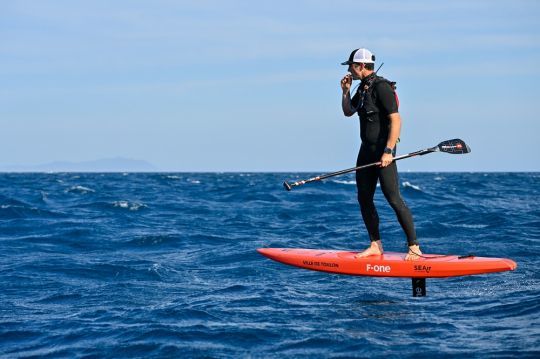
"But none of this would have been possible without the support of the Toulon Yacht Club. They were the first to follow me and give credibility to my attempt.
I also worked closely with students from the Sea Tech engineering school in Toulon. During training sessions, they equipped me with muscle sensors to test 8 different foil configurations, and give me clues to find the most economical oar possible on this endurance event."
A special weather window
To make this crossing a success, Erwan and his team are looking for optimal wind and swell conditions:
"We're looking for a window with a west-north-westerly direction, which rises early in the morning from the mainland, without it turning too south-westerly when we get to Corsica, ideally 20-30 knots. But no advantage. In a big cartridge, I'll go faster, but I'll get tired quicker too.
Ideally, the crossing will take place in June, to take advantage of a long day and get as much light as possible. I'll be following a track a little to the right between the Porquerolles lighthouse and the Revellatta lighthouse."
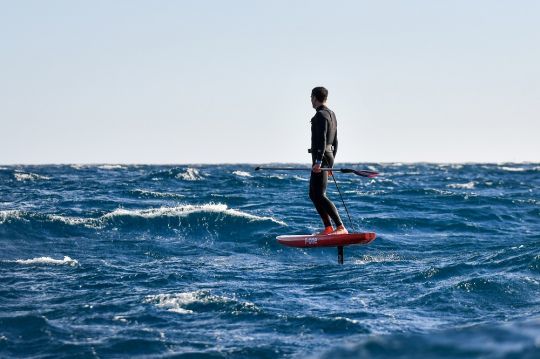
A project to serve other fields
As well as sporting performance, Erwan wants to give a broader dimension to his project:
" I want to promote this sport, which has come a long way. It allows us to accomplish things previously considered impossible. It's also prompted reflection on maritime transport without the need for fossil fuels or engines. I'm going to use my own energy and that of the waves. We mustn't stop ourselves from trying things and having ideas."

 /
/ 